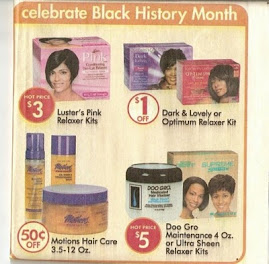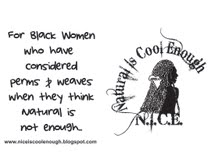I recall meeting with one of my former colleagues at a University where we were both Professors. We were talking about obesity and how it is viewed culturally in the U.S. vs. some other countries. I began to tell her about this wonderful place called Fiji, where the women dancers, as an example, for the most part, are large, in terms of weight, in comparison to what the U.S. considers the standard of beauty, in terms of size.

She interrupted me, in a very condescending way and stated, leaning forward and placing her hand on my knee, "Oh you mean Fuji." I looked at her thinking to myself, another White person thinking Black people don't travel and need to be schooled about places in the world. I moved back and gave her a look, knowing that I had just experienced a microaggression as described in my book on cultural competency, which promptly led her to remove her hand from my knee. I summarily informed her, albeit politely, that I did not mean Fuji, but Fiji. I then explained to her that Fiji, the place that I had visited with my husband and two children, is an archipelago consisting of 330 plus islands inhabited by people, of primarily African descent, that are referred to as Melanesians.
I corrected her by stating that she, I believed, was referring to the word that perhaps she had heard in relationship to film or the mountain in Japan, that I had also visited. She looked at me with a blank stare of embarrassment at which time I reverted to our previous conversation about obesity and the beauty of Fijian women and the people overall.
You see Black people do travel, which leads me to my discussion of Fiji. It is a place of warm, gracious, predominantly Black people. We traveled there from Miami and broke up our trip by stopping in Los Angeles before heading to the Airport for our connecting flight, via Fijian airlines. There, we began to see Black people with Afros, waiting to board their flight. We looked at them and they looked at us, noting our differences and our sameness--the reality that we were all Black, but from different places and cultures. Our smiles connected us and when we reached the island of Viti Levu, in Fiji, as we walked around our hotel and ultimately visited one of their villages, we were greeted heartily with the word, Bula (the Fijian word for hello), with the biggest smiles you can imagine.
Before going there, I had a lengthy discussion with my younger brother who, while a Columbia University student, spent much of his time studying abroad in Europe and Africa, and subsequently, continued to be a world traveler. He informed me that the Fijian people were African. He had not traveled to there but read about them and desired to go there. One of my other White, Professor colleagues argued that Fijian people were not African but rather Melanesian. He had not been there either. I listened to both of their positions and decided I would find out. I would go with my family to Fiji and ask the people myself, and so I did.
The Fijian people are very gracious and the gentleman that we met who ran the kids program at the beautiful Sheraton Fiji Resort, where we stayed, was named Moses. Moses organized games and playtime for the children and chatted with us when we picked them up from their activities.
He was delighted to see Black people, from the U.S., and invited us to his village to attend the wedding of one of his family members and to visit the local school. We were thrilled to do so! I asked him if Fijians were of African descent and he laughed and replied "of course!" We went to the village and I had the privilege of sitting with the men, along with my husband and children, during one of their meetings, which was generally not permissible as women do not sit with the men when meeting with the Chief of the Village. But because I was a Professor, I was permitted to do so. It was at that time, that the Chief shared important information with all of us, in Fijian, as translated by Moses, after I asked him where were Fijian people from originally. He explained that the people of Fiji are indeed of African descent, from East Africa, as they had traveled on ships called druas to Fiji and settled there in their early history.
Although there are some who consider this to be Fijian lore, I have no doubt regarding the accuracy of their understanding of their history as everything about them appears to indicate that they are of African descent. I valued and appreciated the connection between them and my family during our visit--one group of people of African descent to another. We attended the wedding and participated in our first kava ceremony.
While in Fiji, besides the wonderful time spent getting to know the Fijian people, we enjoyed scenery so beautiful that I couldn't imagine leaving. The water was warm, crystal clear and vividly blue. The food was fresh and delicious including lots of seafood, rice, bread, coconuts, curry, fruit and general deliciousness. The people kept telling us to eat because they thought we were too thin! That was remarkable and enhanced my desire to stay there forever. There wasn't a great deal to do there, but that was the joy of it. We went snorkeling, which was exquisite--the best that I've ever experienced anywhere in the world, and enjoyed an excellent day cruise to visit other islands. On that excursion, we tried kava again with the Fijian people and other guests on board. We also spent a great deal of time in hammocks, I had a wonderful beach massage and we traveled around daily absorbing the loveliness of it all. We marveled at their crafts, particularly their skills with coconuts and masi (Fijian bark cloth) and purchased some hand carved statues and a mask for my collection. My husband and son wore lapas (cloth worn in a skirt-like fashion), as is the custom of the men there. We also took a ride on a shotover jet, which is a very fast jet boat ride and a highlight for our children and us!
To find out my overall opinion of Fiji and to see my latest travel tips: http://www.huffingtonpost.com/patti-r-rose/50-countries-and-counting_5_b_9091244.html



















